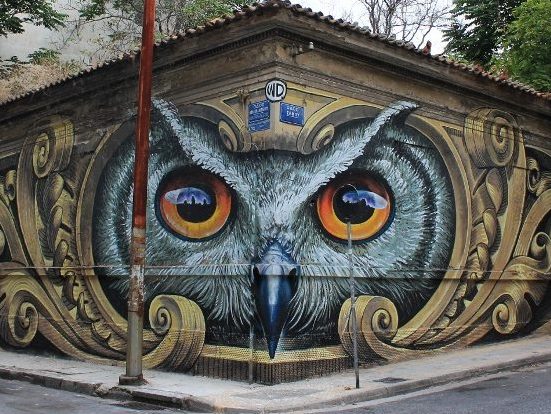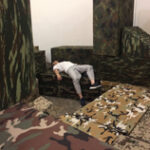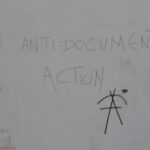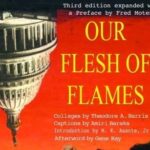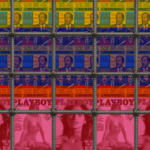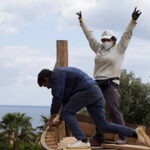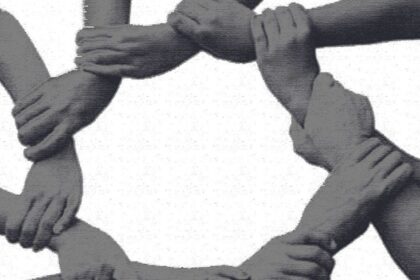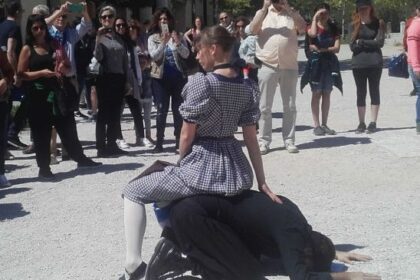Learning from documenta
Elpida Rikou, Eleana Yalouri and Apostolos Lampropoulos
This is a special issue of FIELD, guest edited by Elpida Rikou, Eleana Yalouri and Apostolos Lampropoulos, devoted to the independent socially engaged research project Learning from documenta (Lfd). This international and interdisciplinary project was coordinated by Elpida Rikou and Eleana Yalouri and based in Athens, Greece. The content of this issue reflects the project’s aims, which were to critically observe, discuss and analyze aspects of the preparation, presence, impact and aftermath of the 2017 fourteenth edition of the major international art exhibition documenta (d14), Learning from Athens, with reference to artistic, cultural, economic and sociopolitical developments in Greece and internationally. On this occasion the exhibition took place for the first time not only in documenta’s hometown of Kassel, Germany but also in a second city, the capital of Greece. The decision to make this partial move from documenta’s usual venue was inspired by the emphasis in contemporary art on political engagement and by popular imagery of Athens as both the birthplace of Western civilization and a ruined crisis landscape and hotbed of anti-austerity activism.
The Lfd project, as well as this issue which encapsulates its experience, draws on contributors from the humanities, the social sciences and the arts to catalyze an experimental and networked process of artmaking and writing in order to gain insight into the creation and impact of a major art exhibition. All major art happenings are historical events and socio-cultural phenomena, which acquire epistemological, political and topical significance, particularly in periods of crisis. d14 specifically was embedded in a period of worldwide upheaval and rapid global change. In that sense, this issue contributes to the assessment of transformations taking place in global and local art worlds, to the creation of new research modes and methodologies designed to better address these transformations, and to the renewal of contemporary art’s dialogue with various academic and theoretical discourses.
This special issue emerged from the Lfd research as well as Lfd’s closing event, and includes contributions from scholars (mainly anthropologists, but also art historians, cultural theorists and visual artists), who have brought together the scope and methods of their disciplines and their art to study d14 and its repercussions in the critical period of the so-called “Greek crisis”. The essays included in this issue are also informed by the activities (public events, roundtable discussions, workshops and reading groups, fanzine publication) organized by the Lfd research group as a way of engaging a wider public in its discussions and of forging research communities in order to develop new methodologies and collaborations. The contributors include artists and scholars working both within and outside academia, students, etc., and represent a truly transdisciplinary spectrum of research. They have worked on d14 in various critical ways, in order to produce transdisciplinary and/or socially and politically engaged art (and) research. Nevertheless, this publication still does not represent the entirety of the Lfd project’s material, which was collected over a period of six years, nor its contributors’ intellectual and affective investment, both of which have yet to be fully processed.
This publication is timely. While the upcoming fifteenth edition of documenta has been postponed until the summer of 2022 due to the covid-19 pandemic, d14 is still close enough in time to be clearly remembered. At the same time, we now have sufficient distance from it to allow for critical reflection on the major issues with which it was concerned, as well as on more general questions related to the ethics and politics of a major art institution’s attempt to learn from other cities, the future of international art exhibitions, and the next steps for contemporary art in general. At a time when interest in networked research projects is growing, this special issue can make a significant contribution by sharing the experiences of the Lfd team and their collaborators, all of whom offer their thoughts on the multimodal collaborative format employed in the project. It also brings to the table questions arising from forms of artistic research undertaken in a more engaged manner, referring critically to the problematic public impact and the accumulated institutional impediments of today’s global—yet still largely Western-centric—art world.
And importantly, this issue documents the first extensive collaborative work to systematically engage with d14 and one of the few to discuss the repercussions of the presence of an international art institution in a country in crisis. It is based on a theoretical understanding of the relationships between institutions and socially engaged, bottom-up initiatives such as Lfd, which stems from the actual experience of a polyphonic collective/research group that was conceived, organized and implemented as an initiative at a specific socio-political and historical conjuncture, with specific research questions, artistic and political aims. It also connects and engages with artistic and the scholarly communities by bringing them into dialogue. It combines three types of contributions: academic essays (Anagnostopoulos, Buurman, Fotiadi, Gougousis, Grigoriadou & Samantas, Konstantinou, Lampropoulos, Lignou-Tsamantani, Rehberg, Rikou, Yalouri 1, Zefkili); visual works such as photographs, video stills, sketches, graffiti, collages, photo essays, fanzine excerpts, and associated statements (Biza, Byck, Giannakopoulou & Kondylatou, Gouseti & Yalouri, Yalouri 2, Sifostratoudaki, Sklavenitis); and shorter texts, either in the form of commentaries on d14 artworks (Fidetzis, Lionis, Tzortzaki, Zika) or postscripts (Fillitz, Marcus, Sansi-Roca, Schneider, Wildner). These three types of contributions represent interweaving lines of thought and making, highlighting the connections, but also the divergences, that occur in a collaborative research project.
This special issue is divided into three sections, following a line of development connecting three concepts: “Narratives,” “Conjunctures” and “Cartographies”.
“Narratives” is about history, stories and storylines. It revolves around textual, visual, audio and other works by and on d14, as well as some of the major theoretical issues that the exhibition raised, such as democracy, suffering and trauma, and the queer and queerization. Τhis special issue aspires to be part of the critical reception of d14’s history, and this section in particular contextualizes d14 within the wider history of documenta since the 1950s and its engagement with the idea and representations of democracy (Buurman). In addition to that, this section addresses some of the ways in which d14 presented both Western and non-Western histories to its audiences, while preventing them from gaining any substantial information on their context (Lignou-Tsamantani), in some cases using humor as a way of approaching traumatic events (Lionis) or romanticizing d14’s approach to history in times of crisis (Fidetzis). Moreover, this section reflects on some of the ways in which d14 recounted staged narratives of hospitality and hostility in Athens and elsewhere (Lampropoulos). It also analyzes the fragments of queer history that d14 curated and, to some extent, neutralized, despite the radical approach it aspired to (Rehberg). Finally, it includes texts (Rikou) and visual works (Sifostratoudaki) narrating something of the complex and fascinating interweaving of the histories of d14 and of the Lfd project.
“Conjunctures” is about dynamics and the forming of relationships, juxtapositions and inter-weavings stemming from documenta’s partial move from Kassel to Athens. This move entailed not simply a geographical relocation, but also a shift towards the Other. That shift was materialized through discourses and artworks which drew on established ideas and aesthetics connected to Athens (e.g. its ancient and contemporary ruins, as explored by Yalouri, Yalouri et al.), but also referred to other places as far away as Africa, connected to individual artists’ socio-cultural, emotional and geographical anchorings (Zika). Some of these discourses and artworks were driven by visions of ‘supranational assemblies’ and borderless states, taking the form of ‘unrehearsed encounters’ (Tzortzaki). All of them, as well as d14’s re-location from Kassel more generally, led to a multiplicity of local responses and/or reactions (Zefkili), from anticipation and uncertainty (Yalouri & Gouseti), to indifference and/or ‘refusal’ (Konstantinou, Anagnostopoulos), to critical reflection and the production of art reflecting on German-Greek stereotypes (Biza) or the rhetoric of the global South (Sklavenitis).
“Cartographies” engages with the concept of movement as a recurrent theme in d14’s design as well as an anthropological and/or curatorial practice (Grigoriadou & Samantas). It reflects on the ways in which d14 worked engaged with the concept of the local through a series of more or less long-term community projects (Anagnostopoulos & Rikou), ephemeral initiatives involving an alternative economy (Byck), or artworks functioning as monuments to the discourses and controversies that were raised by d14 in Athens (Fotiadi). It also identifies and brings to the fore important ethical and political conundrums of contemporary art through fieldwork (Gougousis, Giannakopoulou & Kondylatou).
Each one of these sections concludes with a postscript by our external collaborators (Marcus and Fillitz on Νarratives, Schneider on Conjunctures, Sansi-Roca on Cartographies), who reflect and comment on the individual contributions and the project as a whole. The issue closes with two self-reflexive personal accounts of ‘what happened’ by the co-ordinators of the Lfd project (Rikou, Yalouri).
We wish to thank FIELD, a genuinely innovative and politically sensitive specialized journal, for hosting this special issue. FIELD has already produced a special issue on the interrelations between Art and Anthropology with contributions on Lfd (FIELD 11, guest editors Elpida Rikou & Eleana Yalouri). We also thank the Ioannis Kostopoulos Foundation and the Rosa Luxemburg Foundation, who offered their financial support for certain events in the Lfd project, as well as the Athens School of Fine Arts and the Panteion University of Social and Political Sciences, who supported and hosted certain events of the project. For their additional support we thank the British School at Athens, the Netherlands Institute at Athens, the Norwegian Institute at Athens and Ethnofest. We are grateful to our collaborators not based in Greece, including George Marcus, Thomas Fillitz, Arnd Schneider, Roger Sansi-Roca, Christopher Wright and Kathryn Wildner, whose work has inspired our own and who joined in the project with enthusiasm from its inception. And, of course, we are grateful to all the members and collaborators of the Lfd project as a whole for their precious and inspiring work over its three-year duration; special thanks go to Αlexandra Siotou and to the Panteion students’ team, Christina Anagnostou, Grigoris Gougousis, Giorgis Manioudakis and Giorgos-Ilias Sakkas, who participated wholeheartedly in the research, discussions and organization of all Lfd events, as well as to all those who participated and/or supported the project even for a short while. We also thank Io Chaviara for having designed the logo of the Lfd project. Last but not least, we would like to thank all our contributors most warmly for their precious contributions that have made this issue possible.
The Guest Editors
Elpida Rikou has studied sociology, social psychology, anthropology, and visual arts in Athens and Paris. She has taught at several different universities since 1998. She has also taught Anthropology and Contemporary Art in the Athens School of Fine Arts from 2007 to the present day. She is the editor of Anthropology and Contemporary Art (Alexandria, 2013) and of the translation into Greek of Marc Augé’s Pour une anthropologie des mondes contemporains (Alexandria, 1999). She has co-edited two volumes combining works by artists and contributions from social scientists on value (Αξία/Value, Nissos, 2018) and on voice (Φωνές/Fones, Nissos, 2016), as well as the translation into Greek of Alfred Gell’s book Art and Agency (M.I.E.T., forthcoming). She has published articles in scholarly journals, edited collections, art catalogues, and newspapers. She is the co-founder of TWIXTlab (2014 to the present day), a laboratory between (twixt) art, anthropology and the everyday, and the coordinator of several art projects with a transdisciplinary character in which she is also a participant as an anthropologist and visual artist.
Eleana Yalouri is an Associate Professor at the Department of Social Anthropology at Panteion University of Social and Political Sciences in Athens. She has a BA in Archaeology (University of Crete, Greece) an MPhil in Museum Studies (University of Cambridge) and a PhD in Social Anthropology (University College London), and has carried out postdoctoral research at Princeton University. She has been a visiting lecturer at the University of Westminster, London, a lecturer in the Department of Anthropology of University College London and a visiting lecturer at the University of Malta. Her teaching, research interests and her publications in periodicals and edited volumes include the following issues: theories of Material Culture; Issues of national identity and the representation of the past; cultural heritage and the politics of remembering and forgetting; theories of space and the social construction of landscape; Anthropology and Art; Anthropology and Archaeology. Her current research projects involve collaborations with visual artists and art historians exploring the borders between contemporary art and fields of inquiry dealing with the material culture of the past or present, such as archaeology and anthropology.
Apostolos Lampropoulos is Professor of Comparative Literature and Vice-President of International Relations–Research at the University Bordeaux Montaigne. He has taught for several years at the University of Cyprus, and for shorter periods at the University Paris Ouest Nanterre La Défense and the University of Patras. He has been Visiting Professor at the Free University of Berlin, Stanley J. Seeger Visiting Fellow at Princeton University, and Marie Curie Fellow and Visiting Scholar at the University of Pennsylvania. He has published the monograph Le Pari de la description (2002). He has co-edited the academic volumes States of Theory (in Greek; 2010), AutoBioPhagies (2011), Textual Layering (2017) and Écriture musicale, écriture picturale de la littérature et des arts (2017), the hybrid volume Value/Axia (in Greek; 2018), as well as the thematic issue “Configurations of Cultural Amnesia” for the journal Synthesis (2011). He is co-editing the volume Débordements (forthcoming). He has also co-curated the exhibition Intimacy: New Queer Art from Berlin and Beyond (2021) at the Schwules Museum in Berlin. He is currently working on two monographic projects, one on eating in contemporary Greek literature and culture, and another on the concept of critical intimacy.
The Lfd Athens Team
Aris Anagnostopoulos | social anthropologist, historian; University of Kent, Initiative for HERITΛGE Conservation
Christina Anagnostou | social Anthropologist; BA Panteion University
Natasa Biza | visual artist; MFA, Athens School of Fine Arts
Ethnofest | The Athens Ethnographic Film Festival
Eva Giannakopoulou | visual artist; PhD candidate in Fine Arts, Athens School of Fine Arts
Grigoris Gkougkousis | social Anthropologist; MA Panteion University
Fotini Gouseti | visual artist; PhD candidate in Social Anthropology, University of Thessaly
Sofia Grigoriadou | visual artist; PhD candidate in Social Anthropology, Panteion University
Dimitra Kondylatou | visual artist; ΜΑ, Dutch Art Institute
Katerina Konstantinou | art historian; PhD candidate in Social Anthropology, Panteion University
Kyveli Lignou-Tsamantani | art historian; PhD candidate in History of Art, University of York
George Manoudakis | social Anthropologist; BA Panteion University, MA candidate in Ethnology and Cultural Anthropology, University of Ljubljana
Elpida Rikou | social anthropologist, visual artist; Athens School of Fine Arts
Giorgos-Ilias Sakkas | social Anthropologist; MA Panteion University
Giorgos Samantas | visual and sound anthropologist; MA, University of Manchester
Vasiliki Sifostratoudaki | visual artist, graphic designer; MFA, Piet Zwart Institute
Alexandra Siotou | social anthropologist; postdoctoral fellow, University of Thessaly
Eleana Yalouri | social anthropologist, archaeologist; Panteion University
Collaborators
Thomas Fillitz | social anthropologist; University of Vienna
Apostolos Lampropoulos | literary & cultural theorist; University Bordeaux Montaigne
George Marcus | social anthropologist; University of California, Irvine
Roger Sansi-Roca | social anthropologist; University of Barcelona
Arnd Schneider | social anthropologist; University of Oslo
Kathrin Wildner | social anthropologist; HafenCity University Hamburg
Christopher Wright | social anthropologist; Goldsmiths University

